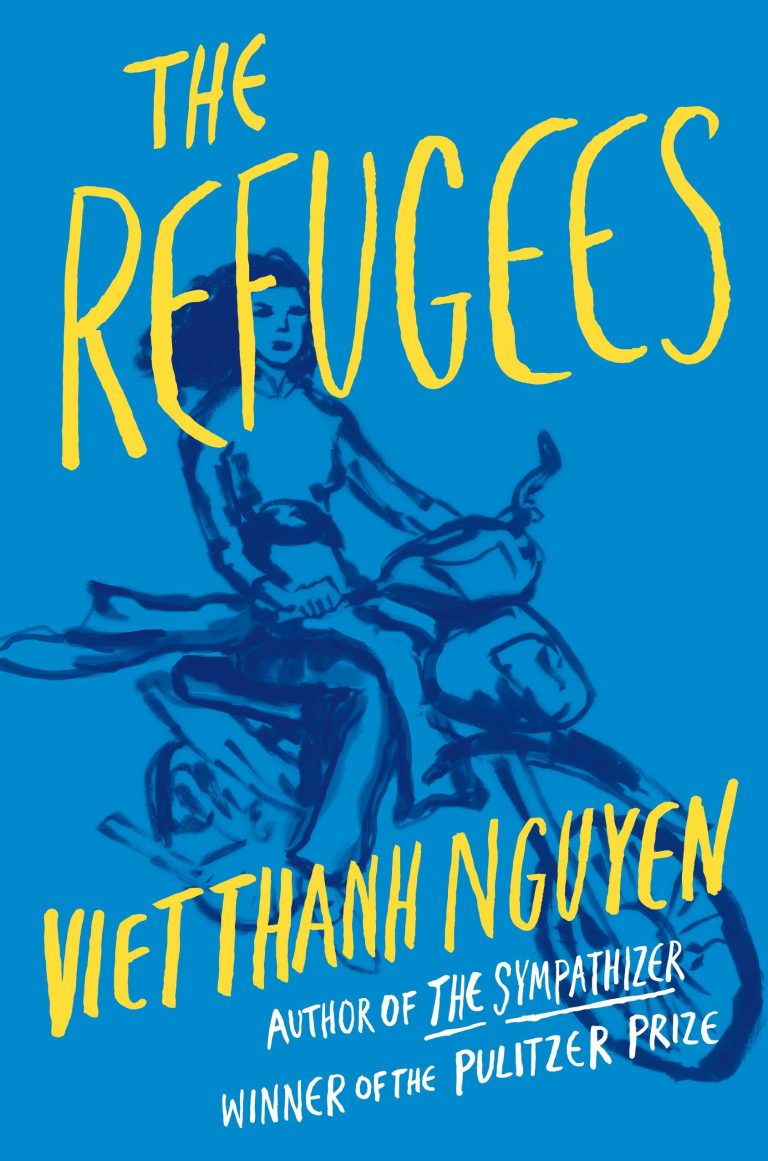Viet Thanh Nguyen’s The Sympathizer was one of the most widely and highly praised novels of 2015, the winner not only of the 2016 Pulitzer Prize for Fiction but also the Center for Fiction First Novel Prize, the Edgar Award for Best First Novel, the Andrew Carnegie Medal for Excellence in Fiction, the Asian/Pacific American Award for Literature, and the California Book Award for First Fiction. Nguyen’s next fiction book, The Refugees, is a collection of perfectly formed stories written over a period of twenty years, exploring questions of immigration, identity, love, and family.
The book is already generating buzz, having received four starred reviews from all four pre-publication review magazines: Library Journal, Publishers Weekly, Kirkus Reviews and Booklist, which says that “For Nguyen groupies desperate for future titles (including a Sympathizer sequel), Refugees is a highly gratifying interlude. For short fiction fans of other extraordinary, between-culture collections such as Daniyal Mueenuddin’s In Other Rooms, Other Wonders and Jhumpa Lahiri’s Unaccustomed Earth, Nguyen won’t disappoint.”
With the coruscating gaze of The Sympathizer, in The Refugees Viet Thanh Nguyen gives voice to lives led between two worlds, the adopted homeland and the country of birth. From a young Vietnamese refugee who suffers profound culture shock when he comes to live with two gay men in San Francisco, to a woman whose husband is suffering from dementia and starts to confuse her for a former lover, to a girl living in Ho Chi Minh City whose older half sister comes back from America having seemingly accomplished everything she never will, the stories are a captivating testament to the dreams and hardships of immigration.
The second piece of fiction by a major new voice in American letters, The Refugees is a beautifully written and sharply observed book about the aspirations of those who leave one country for another, and the relationships and desires for self-fulfillment that define our lives.
“Precise without being clinical, archly humorous without being condescending, and full of understanding; many of the stories might have been written by a modern Flaubert, if that master had spent time in San Jose or Ho Chi Minh City . . . [Nguyen’s] stories, excellent from start to finish, transcend ethnic boundaries to speak to human universals.”—Kirkus Reviews (starred review)
“A collection of fluidly modulated yet bracing stories about Vietnamese refugees in the U.S., powerful tales of rupture and loss that detonate successive shock waves….Each intimate, supple, and heartrending story is unique in its particulars even as all are works of piercing clarity, poignant emotional nuance, and searing insights into the trauma of war and the long chill of exile, the assault on identity and the resilience of the self, and the fragility and preciousness of memories.” —Booklist (starred review)
“Viet Thanh Nguyen really has pulled off a literary hat trick, in quick succession at that—brilliant novel (The Sympathizer), brilliant non-fiction study (Nothing Ever Dies)—and now, with The Refugees, a superb, brilliant book of stories. These books do stand apart, distinct from each other, which makes the world limned in these stories even more remarkable. These are fully human tales, what these vividly rendered characters encounter, all in some way, taking on the shock of arrival in a new land, if not departure from what had been home. This is beautiful, telling work—once again!”—Rick Simonson, Elliott Bay Book Company
“The Refugees continues our opportunity to get to know Viet Thanh Nguyen, who we met with The Sympathizer. The stories set out immigrant experiences both here and in other places (mainly Vietnam). The experiences are riveting, compelling, and ring true. The writing, as I am told has been said, is as good as The Sympathizer, but a comparison is really not necessary. This work should be on everyone’s shelves for itself.”—Steve Bercu, bookseller, BookPeople
“Viet’s writing in The Sympathizer reminded me of Ravel’s Bolero . . . starting quietly with an assured fullness, yet becomes more insistent until fully realized. The Refugees—story as étude. Each rather difficult, yet short and provocative. “Black-eyed Women” totally enveloped me. Ghosts, writing, dominant mothers, the primacy of sons . . . a self-effacing writer of stories allegedly more interesting. I love the line from the nameless narrator talking to her ghost brother: ‘Why have you come back?’ . . . ‘I haven’t come back, he said. I’ve come here.’ YES, I say to that. A lovely nuanced theory of visitation.”—Lucy Kogler, bookseller, Talking Leaves Books



